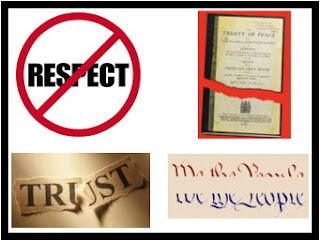This week’s Iowa caucuses may well have been the last that lead
off presidential voting,
at least in the Democratic Party. Loud objections to their first-contest-in-the-nation status have been out
there for a long time. This year’s vote counting debacle may push them off
the cliff. We see good reason for such a demise, but offer one caution we’ll
get to shortly. History reminds of the need for being careful what you ask for
sometimes.
remain first. Iowa, craving national political attention,
designed its caucus so it’s not really a primary – no secret ballot, held at
night over two or three hours, delegates awarded by a complicated alignment and realignment process. The momentum Jimmy Carter, for example, took
out of Iowa in 1976 encouraged candidates to practically move there in the year
before the election. Barack Obama, as we’ll get to, probably wouldn’t have been president without the
gigantic push he got by winning Iowa in 2008. Over time,
however, more people have realized how problematic Iowa’s first-in-the-process
status is.
The Complaints
In this week’s caucus, entrance polls indicated over 90 % of those participating were white.
For a party that depends on black and brown votes, that’s a problem. Since Iowa
often serves the function of winnowing the field and providing momentum for
successful candidates, Iowa’s nearly all-white composition seems especially
troubling. With similarly white New Hampshire next on the program, Iowa’s
unrepresentativeness takes
 |
| Source: US Census Population Estimates 2018 |
on even greater significance. Several cycles ago, Democrats advanced more diverse Nevada and South Carolina on the
schedule, but the out-sized influence of Iowa and New
Hampshire remain. This year, for example, former Vice President Joe Biden’s poor showing in Iowa – and he may not
do better in New Hampshire – leaves his candidacy totally dependent on winning South Carolina on February 29 and doing very
well in Nevada a week earlier.
In the wake of Iowa this year we heard one national commentator
suggest Democrats
start their primary campaign in Michigan. He argued that state much better represents the kind of
electorate a Democrat must attract in running for president. It has big cities
with large minority group populations, suburbs, farming communities, and plenty
of union members. The idea resonates with us, though we acknowledge we can only
guess about how much different the results would have been, if at all.
A second complaint
about Iowa has been the structure of the caucus itself. Not everybody,
the argument goes, can take three hours on a week night for standing
in lines and gathering in groups in high school and college gymnasiums. Without
a doubt, the process limits participation.
Finally, voters and
political scientists have found the public nature of caucuses unnerving.
Revealing one’s electoral choices before friends, neighbors, and strangers
doesn’t comport with notions many Americans have about democracy. That
characteristic may also depress participation.
We get the
complaints about Iowa. They’re all valid. This week’s vote counting debacle may
provide the impetus for moving Iowa to a later
spot on the calendar and perhaps
entice the Iowa Democratic Party to scrap the caucus format for a primary. All that is four or eight years down the
road, depending on the outcome of this year’s general election and other
factors. Right now, we doubt things will stay exactly the same.
The Obama Caveat
 |
| Obama & Clinton - the race for presidency 2008 |
Obama trailed Hillary Clinton by 16 points in
the polls in black-vote-rich South Carolina. Then Obama won a stunning victory
in Iowa. He might not have pulled that off in a primary state (he lost to
Clinton the next week in New Hampshire’s primary). Iowa’s caucus format puts a
premium on field organization, something at which Obama’s campaign excelled.
The demographic coin, therefore, has two sides. One wonders now if
history might
repeat itself with former South Bend, Indiana Mayor Pete Buttigieg. Could his top-of-the-line showing in Iowa (we won’t have the final results for
another week) alleviate skepticism about the viability of an openly gay candidate who
publicly expresses his affection for his husband? Time will tell but we can’t
say it won’t happen.
 |
| Pete Bittgieg and Husband |
Lots of reasons
exist for getting rid of the Iowa caucuses as the first exercise in the
presidential campaign process. History,
and maybe the present, counsel at least a measure of caution.









































